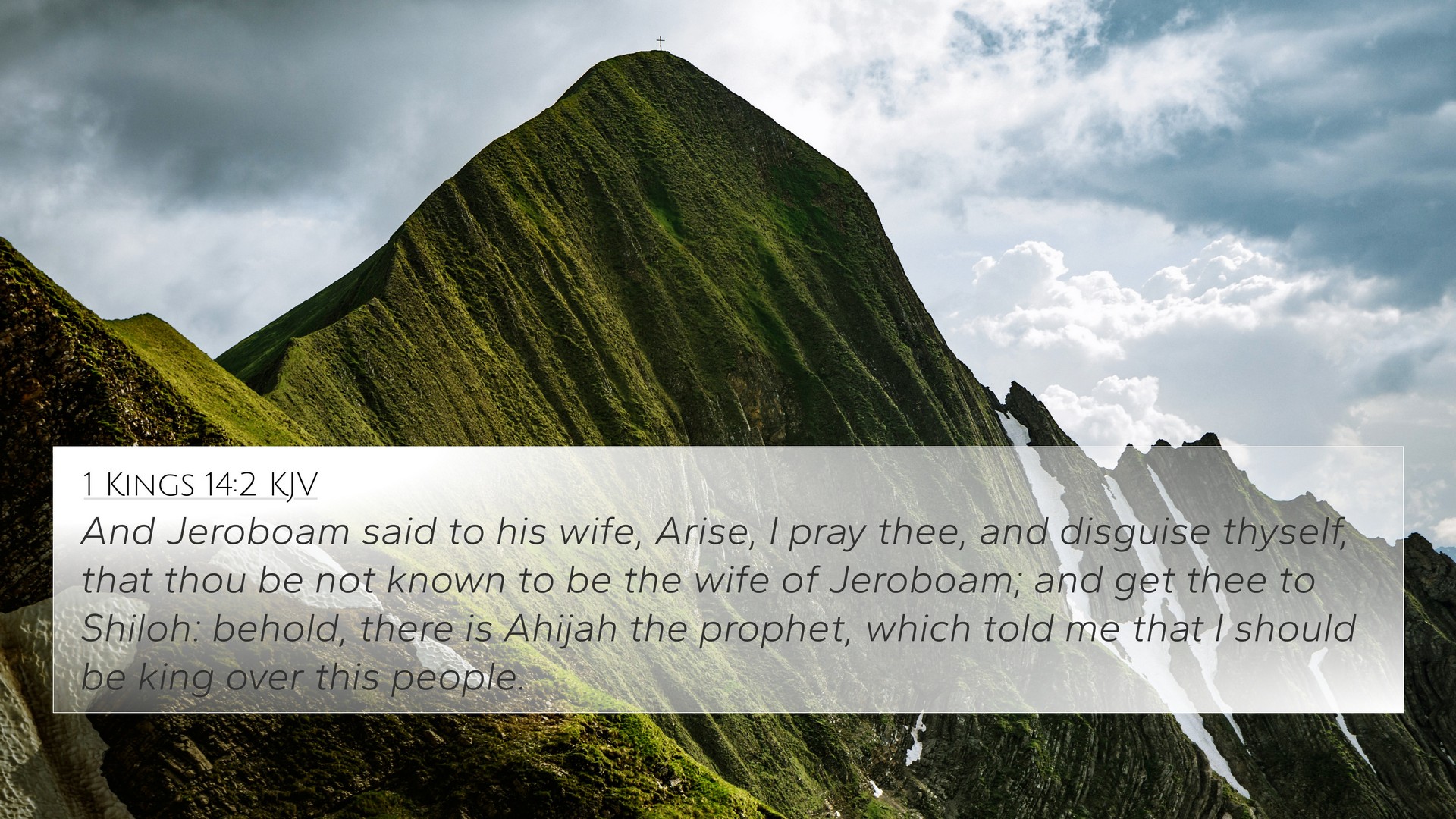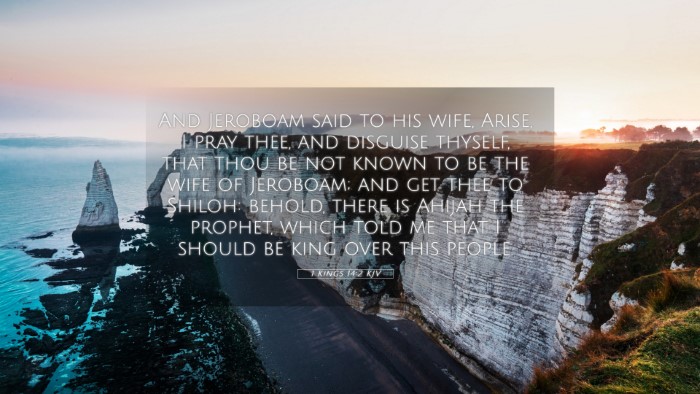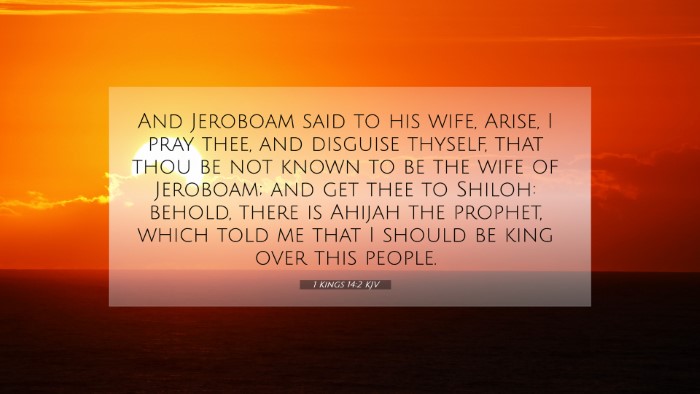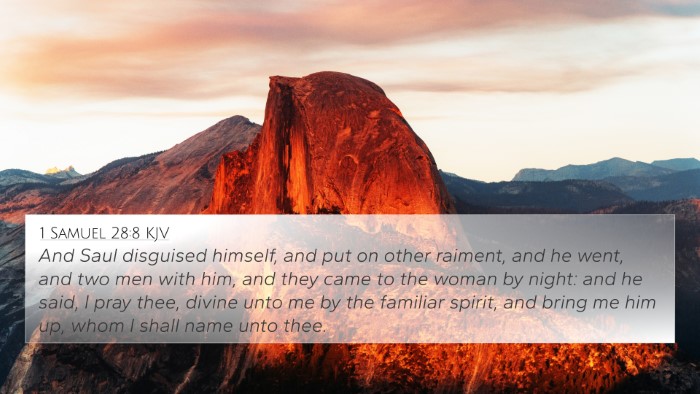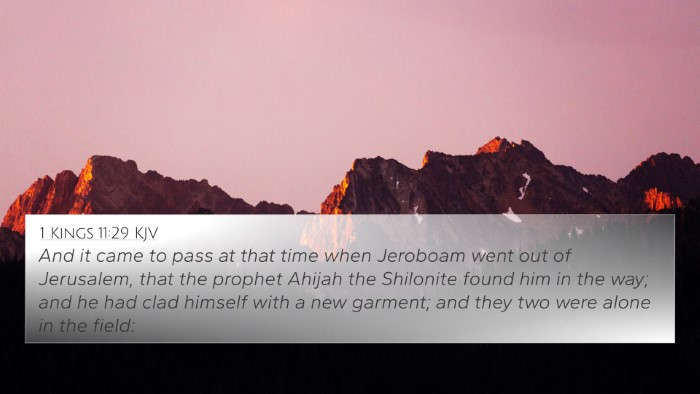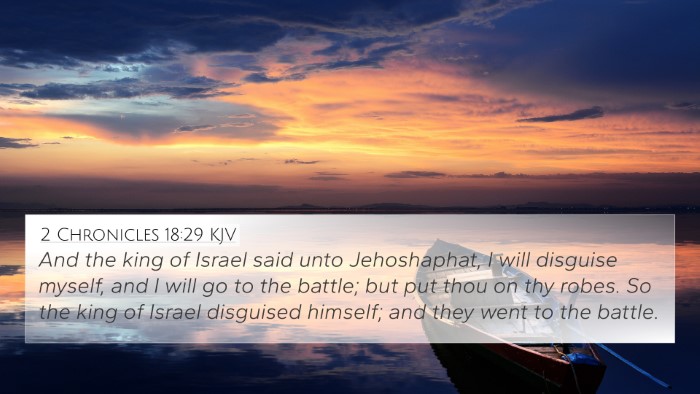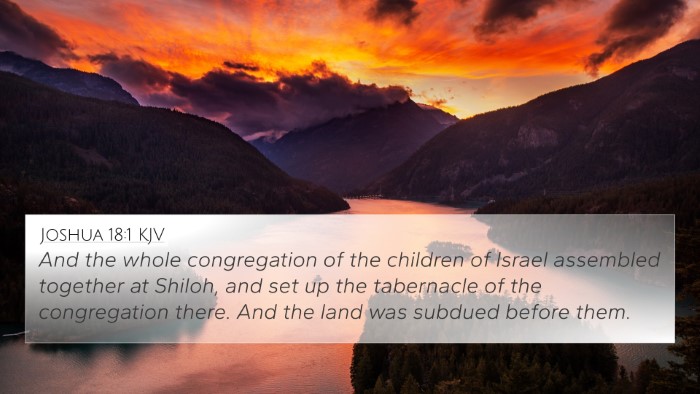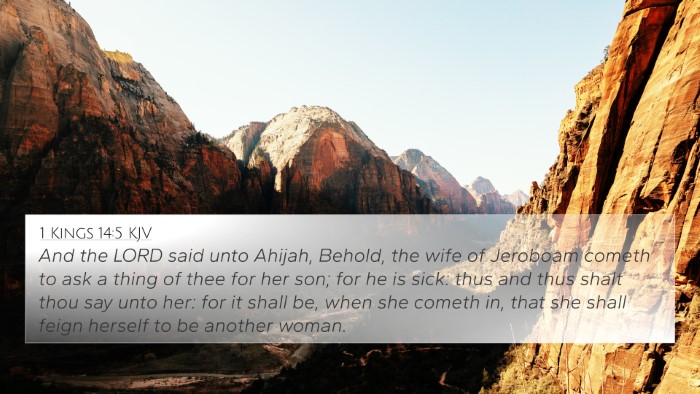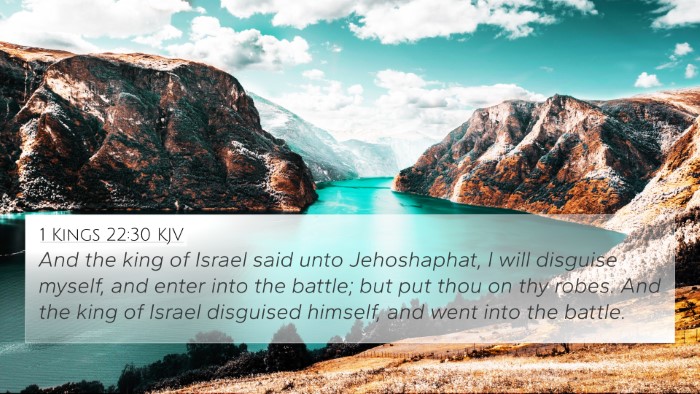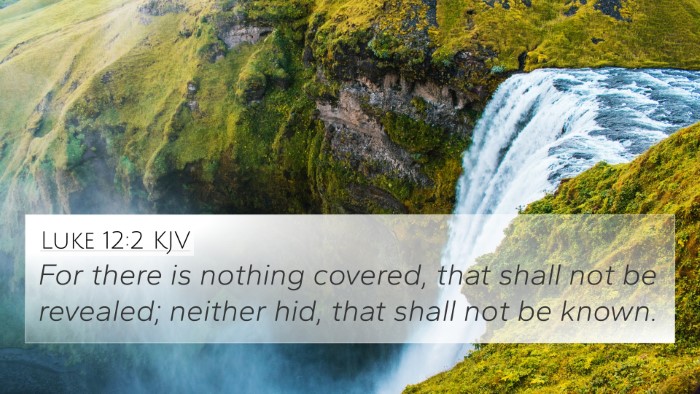Understanding 1 Kings 14:2
Verse: "And Jeroboam said to his wife, Arise, I pray thee, and disguise thyself, that thou be not known to be the wife of Jeroboam; and get thee to Shiloh: behold, there is Ahijah the prophet, which told me that I should be king over this people."
Summary of the Verse Meaning
This passage reveals a critical moment in the life of Jeroboam, Israel's first king after the kingdom split. He instructs his wife to disguise herself so that they might seek counsel from the prophet Ahijah without attracting attention. This act of pretending signifies a desperate need for guidance and a lack of faith in God's provision, illustrating the internal conflict of a leader whose heart is turned away from God.
Insights from Public Domain Commentaries
-
Matthew Henry:
Henry emphasizes the folly of Jeroboam's decision to disguise his wife, highlighting the depth of his insecurity and lack of trust in God. He notes that Jeroboam’s consultation with a prophet reveals his ulterior motives, seeking assurance rather than true guidance.
-
Albert Barnes:
Barnes points out the significance of Ahijah as a prophet, someone who had once delivered God's promise to Jeroboam. By choosing to approach Ahijah incognito, Jeroboam demonstrates his distrust in divine will and the fear of the repercussions of his actions, reflecting his internal conflict.
-
Adam Clarke:
Clarke elaborates on the implications of Jeroboam’s actions as a leader, stating that it leads to a disconnect between the spiritual and temporal authorities. The request for a disguise illustrates that Jeroboam is living in fear and not in faith.
Bible Cross-References
This verse relates to several others in both the Old and New Testaments. Here are some cross-references that provide further understanding:
- 1 Kings 11:29-32 - The prophet Ahijah's earlier prophecy regarding Jeroboam's rise to kingship.
- 1 Kings 12:16-20 - The people's response to Jeroboam's leadership and the division of the kingdom.
- 2 Chronicles 10:16-19 - A parallel account of the kingdom's split and the people's rejection of Rehoboam.
- Jeremiah 7:14 - A warning about the consequences of false worship and disregard for God's commands.
- Hosea 1:1-2 - The prophetic context of Israel’s relationship with God following Jeroboam’s rule.
- Matthew 5:14-16 - Jesus speaks about the importance of being the light to the world, contrasting Jeroboam’s hiddenness.
- Luke 8:17 - A reminder that nothing stays concealed, which connects to Jeroboam’s deceptive actions.
Lessons Learned
This verse imparts significant lessons on leadership, faith, and the consequences of deceit:
- The Danger of Disguise: Hiding one's true identity can lead to a lack of accountability.
- The Need for Faith: Trusting in God's plans rather than resorting to human schemes is paramount.
- Seeking True Guidance: Genuine counsel should always be pursued openly rather than in fear.
Comparative Bible Verse Analysis
To fully appreciate 1 Kings 14:2, one must consider it in the context of surrounding scriptures.
- This verse is positioned within a narrative that underscores the tension between human ambition and divine purpose.
- Cross-referencing with the Prophets, such as Ahijah, offers insights into the role of prophetic guidance in the face of poor leadership.
- Connecting these verses to Jesus' teachings in the New Testament reveals continuity in God's desire for honesty and transparency amongst His people.
Thematic Bible Verse Connections
Understanding the themes present in 1 Kings 14:2 can illuminate broader scriptural truths:
- Deception: The use of disguise indicates struggles with integrity, similar to many Biblical figures who navigated deceit.
- Prophetic Authority: The role of prophets throughout scripture shows God’s ongoing communication with humanity, as seen in both Jeroboam's time and the New Testament.
- Leadership: Jeroboam's leadership style serves as a warning for modern leaders about the importance of reliance on God.
How to Use Bible Cross-References
To delve deeper into understanding 1 Kings 14:2 and its implications, consider employing these cross-referencing strategies:
- Bible Concordance: Use a concordance to locate related verses and their contexts.
- Bible Study Guides: Engage with tools designed to highlight connections between Biblical texts.
- Chain References: Follow thematic chains that link verses through common subjects or keywords.
- Comparative Studies: Analyze how similar themes are presented in various books of the Bible.
Exploring Further - Inter-Biblical Dialogue
The narrative from 1 Kings 14:2 opens the door for further exploration into the dialogue between Old and New Testament teachings:
- Evaluate how Jesus’ ministry reflects the themes of leadership and prophetic guidance found in the Old Testament.
- Consider contexts in which kings and leaders acted contrary to God’s directives and the consequences therein.
- Explore parallels in New Testament scriptures that emphasize honesty and seek to deepen one’s faith.
Conclusion
In summary, 1 Kings 14:2 is a pivotal verse that highlights the complexities of leadership, the need for genuine faith, and the significant role of prophets in guiding the people of Israel. By leveraging cross-references and thematic connections, we can obtain a fuller understanding of God's message and apply it meaningfully in our lives today.
